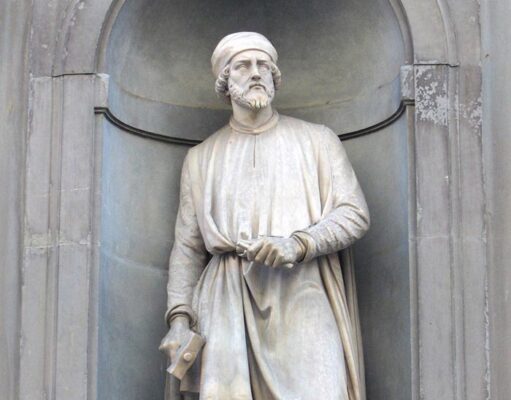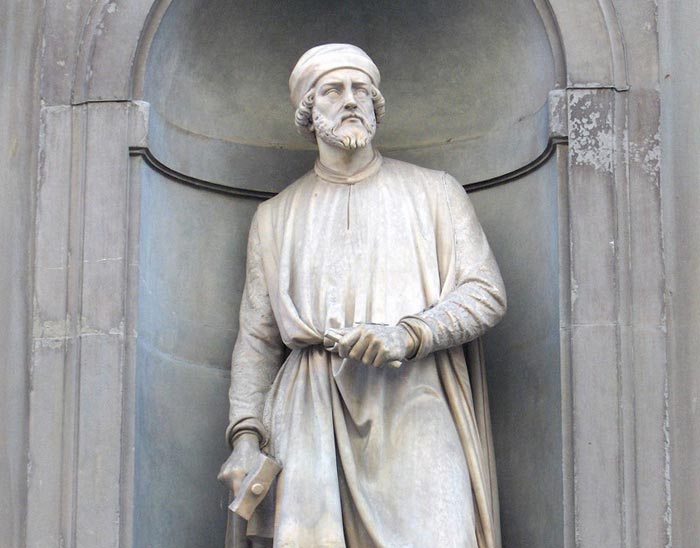Donatello: A Sculptor of the Renaissance
Life and Background:
- Born: c. 1386, Florence, Italy
- Died: December 13, 1466, Florence, Italy
- Full Name: Donato di Niccolò di Betto Bardi
- Profession: Sculptor
- Known For: Pioneering Early Renaissance sculpture, mastering both marble and bronze
Early Life:
- Details about his childhood are scarce.
- His father, Niccolò di Betto Bardi, was a wool carder, suggesting a comfortable middle-class upbringing.
- While the exact details of his early training are unknown, he likely learned stone carving during his youth.
Career Highlights:
- Early Career (1400s):
- Apprenticed briefly with Lorenzo Ghiberti on the Florence Baptistery doors.
- Developed his own style, influenced by classical sculpture and imbued with humanist ideals.
- Created iconic works like the Saint George (c. 1417) and the David (c. 1408-1416).
- Travels and Collaborations:
- Worked outside Florence in cities like Rome, Padua, and Siena, sharing his techniques and influencing other artists.
- Created masterful bronze sculptures like the Gattamelata equestrian statue (1443-1453) in Padua.

- Later Career (1450s-1460s):
- Continued to create innovative and expressive sculptures, pushing the boundaries of the medium.
- Developed the “rilievo schiacciato” technique, creating low-relief sculptures with nuanced depth.
- His later works, like the Judith and Holofernes (c. 1455-1460), showcase a dramatic and emotional intensity.
Legacy:
- Considered one of the most influential sculptors of the Renaissance.
- His work bridged the gap between the Gothic and Renaissance styles, paving the way for future generations of artists.
- His innovative techniques and profound emotional expression continue to inspire artists and art lovers today.
Further Exploration:
- To delve deeper into Donatello’s life and work, you can visit resources like:

